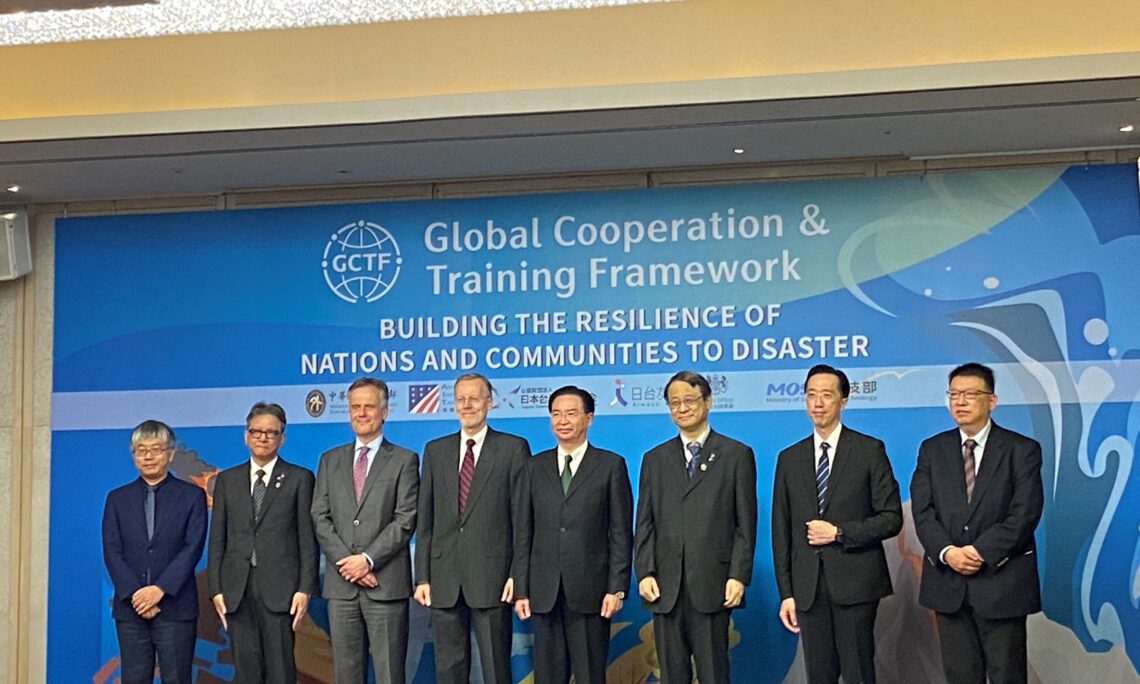OT-2104
March 10, 2021
Remarks by AIT Director W. Brent Christensen
at GCTF Workshop on Building the Resilience of
Nations and Communities to Disasters
March 10, 2021
(as prepared for delivery)
Foreign Minister Wu, Deputy Minister Lin, distinguished colleagues from foreign missions in Taiwan, panel speakers and guests, ladies and gentlemen, friends from around the world, good morning, good day, and good evening!
It is my great pleasure to be with you today to kick off this U.S.-Taiwan-Japan Global Cooperation and Training Framework workshop on building the resilience of nations and communities to disaster. We would also like to welcome the United Kingdom, as a first-time co-host and supporter of this GCTF activity.
I would like to extend our appreciation to Dr. Li Wei-sen and his team at the National Center for Disaster Reduction under the Ministry of Science and Technology as well as the Ministry of Foreign Affairs for organizing today’s event.
It is fitting that we come together today to commemorate the 10th anniversary of the March 11, 2011 Great Japan Tohoku Earthquake and Tsunami for a workshop focused on rebuilding communities and nations following disaster. We still have so much to learn from one another. As AIT Director, I have been very impressed with Taiwan’s world-class capabilities in humanitarian assistance and disaster relief. AIT has been proud to jointly host several workshops, including two under the GCTF, to train third country practitioners from across the Indo-Pacific region on best practices in disaster relief. Since the 9/21 earthquake here in Taiwan in 1999, Taiwan has worked hard to enhance its ability to respond to natural disasters, and in doing so has become a model of disaster preparedness for the region.
Taiwan has an impressive record of responding to countries in need, demonstrating Taiwan’s willingness and capability, as evidenced by Taiwan’s generous contributions in the wake of the Japan earthquake and tsunami in 2011, Taiwan’s response to Typhoon Haiyan in the Philippines in 2013 and Taiwan’s assistance to Nepal following the earthquake in 2015. The United States itself has benefited from Taiwan’s generosity – which included donations following Hurricane Sandy in 2012 and other natural disasters.
Natural and man-made disasters can strike without warning, causing significant injuries and loss of life, threatening livelihoods, and depriving people of the most basic necessities of life. Nearly all of us participating in this workshop today have experience in dealing with some aspect of these kinds of catastrophes.
In the United States, as we continue to manage the COVID-19 pandemic, Winter Storms, such as the one Texas experienced recently, are active emergencies in which U.S. federal, state, and local authorities must work together to coordinate a swift and effective response. Deploying assistance to hardest-hit areas requires multi-stakeholder engagement. In these times of great need, no region can recover on its own, so we must all work together.
Just as the Taiwan Model on managing COVID-19 showed the world how to successfully contain the pandemic, the Taiwan Model for responding to disasters also demonstrates impressive best practices. I would encourage you all to consider how your countries can work more closely with Taiwan in this area.
As with other global challenges and non-traditional security threats, effectively responding to disasters – and then helping to rebuild after the initial disaster has passed – requires international cooperation and coordination. Your expert discussions throughout this GCTF workshop will help build your understanding and capacity to deal with future disasters, whenever and wherever they occur. We also hope this event creates connections with counterparts who, when disaster does strike, can quickly respond with advice and assistance.
On behalf of the United States, I want to thank our speakers and guests, for the work you all do to keep your countries safe and resilient. I am delighted that you were all able to take the time to participate in this important workshop. I also hope you will all have the opportunity to visit Taiwan in person once the world is safe to travel again. Thank you.
















![Video Thumbnail [Recovered]-01](../wp-content/uploads/sites/269/Video-Thumbnail-Recovered-01-1-750x450.jpg)





